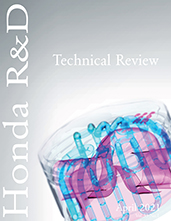Training / Education
A Familiarization of Drivetrain Components
In this course, participants will be exposed to various methods that can be used to accomplish an efficient, robust & quiet running drivetrain. This course focuses on the terms, functions, nomenclature, operating characteristics and effect on vehicle performance for each of the drivetrain components. Participants will receive an introduction to the various components of the drivetrain, including the clutch or torque converter, manual or automatic transmission, driveshaft, axle, wheel ends, and brakes.












